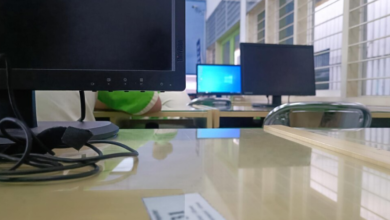The Role of Judiciary in Our Society

The judiciary plays a crucial role in keeping up with law and request, maintaining justice, and ensuring fairness in society. It fills in as the foundation of a democratic system, giving a component to settling disputes, deciphering laws, and protecting individual rights and freedoms.
In this article, we dive into the multifaceted role of the judiciary and its significance in molding a fair and evenhanded society.
Guardian of the Constitution: Ensuring Consistence
One of the essential roles of the judiciary is to defend the incomparability of the constitution. Judges decipher the constitution and ensure that authoritative and chief activities consent to its arrangements. This capability is critical in forestalling the maltreatment of force and keeping up with the equilibrium of abilities among the parts of government.
Through judicial survey, courts can strike down laws or government activities that are considered unconstitutional, in this way maintaining the rule of law.
Administering Justice: Fair Trials and Fair treatment
The judiciary is liable for apportioning justice through fair and unprejudiced trials. Judges and juries assess proof, evaluate observer declarations, and apply the law to decide culpability or honesty. Ensuring fair treatment rights, like the right to legal portrayal, the assumption of blamelessness, and the right to a fast trial, is fundamental in maintaining the respectability of the justice system.
Post-conviction lawyers play a basic role in this process by pushing for people who have been convicted of violations and looking for cures, for example, appeals or sentence decreases in view of legal blunders or new proof.
Defender of Rights: Shielding Individual Freedoms
One more fundamental role of the judiciary is to safeguard individual rights and freedoms ensured by the constitution. This incorporates opportunities like right to speak freely, religion, and gathering, as well as insurances against separation, unlawful hunts and seizures, and awful and uncommon discipline.
Judges decipher laws and legal points of reference to ensure that these rights are maintained and that administration activities don’t encroach upon them. Through milestone decisions and legal conclusions, the judiciary shapes the legal scene and starts trends for future cases.
Authority of Disputes: Settling Conflicts
Courts act as gatherings for settling disputes between people, associations, and government elements. Whether it’s a civil matter including agreements or property rights, a family question like kid guardianship or separation, or a lawbreaker case requiring legal settlement, the judiciary gives a nonpartisan and fair scene for gatherings to introduce their arguments and look for review.
Judges apply applicable laws, points of reference, and legal standards to arrive at decisions that advance fairness and value.
Advancing Responsibility: Checks and Balances
The judiciary plays a urgent role in keeping up with checks and balances inside the public authority. By inspecting the constitutionality of laws and chief activities, courts forestall overextend and maltreatment of force by the authoritative and leader branches.
This oversight capability advances responsibility and ensures that public authorities act inside the bounds of the law and regard the rights of residents. Judicial freedom is major to this role, permitting judges to go with choices in view of legal standards as opposed to political contemplations.
Supporting Civil rights: Tending to Disparities
Past individual cases, the judiciary likewise plays a role in supporting civil rights and tending to systemic imbalances. Courts might hear cases connected with civil rights, ecological security, work rights, and different issues that affect minimized networks.
Judges have the ability to implement laws that advance fairness and justice, for example, hostile to segregation resolutions and measures to safeguard weak populaces. Through their decisions, courts add to molding a more comprehensive and just society.
Ensuring Admittance to Justice: Legal Guide and Free Administrations
It’s critical to recognize that admittance to justice is a basic part of the judiciary’s role. Numerous people, particularly those from burdened foundations, may confront hindrances to legal portrayal and court procedures.
Accordingly, different drives, including legal guide projects and free administrations given by lawyers and law firms, expect to overcome this issue. These endeavors ensure that all people, no matter what their financial status, have the chance to look for legal response, protect their rights, and get a fair trial. By elevating admittance to justice, the judiciary cultivates a more comprehensive and fair legal system.
Adjusting to Developing Challenges: Technology and Advancement
In the present quickly impacting world, the judiciary additionally faces new challenges and open doors achieved by technology and advancement. Computerized progressions have changed legal processes, from electronic recording systems to virtual courtrooms.
While these improvements upgrade productivity and availability, they likewise raise issues connected with information security, online protection, and ensuring fair admittance to technology. The judiciary should adjust to these changes, embracing mechanical advancements while shielding the standards of fairness, straightforwardness, and fair treatment.
By utilizing technology dependably, the judiciary can keep on satisfying its pivotal role in maintaining justice and serving the requirements of society.
Maintaining Justice for All
In conclusion, the judiciary’s role in our society is multifaceted and fundamental. From deciphering laws and defending constitutional rights to settling disputes and advancing responsibility, courts play a crucial role in maintaining justice and fairness.
Post-conviction lawyers, for example, those at Brownstone Appeal Lawyers, add to this process by pushing for people who look for legal cures after conviction. Their endeavors, joined with the judiciary’s obligation to the rule of law, are instrumental in keeping a fair and impartial society for all.


